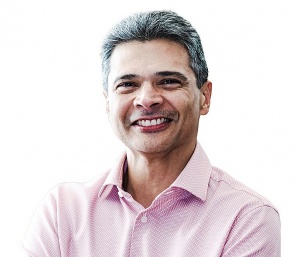Data centre appeal poised to expand
 |
| Some large tech and data centre investments are veering away from traditional markets Photo: Shutterstock |
In Hanoi last week, chairman of the Vietnam Software and IT Services Association, Nguyen Van Khoa, emphasised the urgent need for a comprehensive national data strategy to accelerate the country’s digital transformation.
Talking at the Vietnam-ASIA DX Summit 2023, Khoa said the strategy would entail a methodological approach and plan for generating, connecting, and utilising data to achieve socioeconomic advancements, supported by workforce readiness, robust data architecture, and effective data governance models.
“It will serve as a guiding framework for establishing and harnessing the immense value of digital data within Vietnam’s economy,” he said.
Khoa underscored the significance of collaboration between the private sector and governmental entities in driving Vietnam’s digital transformation.
“The collaborative endeavours focus on several key areas, such as the construction of advanced, modern, and efficient digital infrastructure that underpins the data-driven ecosystem. Furthermore, it is important to facilitate data connectivity and foster a culture of data sharing among different entities, including localities, agencies, and departments,” he highlighted.
Vietnam stands out as the seventh of 10 emerging colocation markets globally, according to a recent KPMG report published earlier this month, and expected to reach $1.5 billion in market size by 2026. Colocation is the practice of renting space for servers and other computing hardware at a third-party provider’s data centre facility.
Meir Tlebalde, merger and acquisition director for KPMG in Vietnam, told a KPMG seminar on the issue on May 12 that large tech investment traditionally tended to take place in tier-1 markets like Singapore, Hong Kong, Sydney, and Tokyo, which account for 82 per cent of Asia-Pacific’s total data centre capacity.
“Yet, tier-1 markets are facing shortage in mass land for development and expensive renewables costs, high construction and power costs, and increasing regulatory frameworks in sustainability and data privacy. With rapid digitalisation, emerging Southeast Asia with land resource and cost competitiveness has become an attractive data centre investment destination,” Tlebalde said.
While the demand is massive, the supply has not yet been accommodated, she added, saying it creates a great opportunity for existing or new players to come in and capture more market growth.
Some key growth drivers for Vietnam’s colocation market are attributed to the lowest development cost in Southeast Asia and capable internet system, reliable power resource at the region’s lowest price, and the accelerated digital transformation. In terms of connectivity, Vietnam is ranked 39th globally in download fixed broadband, the KPMG seminar heard.
As the government is committed to a net-zero policy, this allows Vietnam to become an eco-friendly data centre market for investments in upcoming years. “While the roadmap for that target is not always obvious to investors, we have high hopes that governments will definitely drive the agenda,” Tlebalde noted.
As of April 2023, the country has 28 data centres with approximately 108,700 sq.m total computing space. Hanoi and Ho Chi Minh City are the two major locations, with 11 and 13 centres respectively. The market is concentrated with 11 operators, among which five major players hold 89 per cent of the country’s total computing space.
Experts at the KPMG event also believed that the major challenges for development in Vietnam are the need for a clear and streamlined regulatory framework, as well as power stability. They highlighted the importance of a well-defined licensing process that provides clarity, while high financial costs and liquidity issues also pose obstacles for potential investors.
“The country’s strategic location and strong determination from the government and local partners make it an attractive destination for international investors. Collaboration with experienced regional investors, who have a global perspective, will further enhance the appetite in the landscape,” said Chris Wallace, APAC Data Centre & Critical Facilities Lead of Mace Vietnam. “The need for more capital and expertise in the sector is evident, and industry leaders are optimistic about the future growth and potential returns.”
According to Wallace, Google stands out as a prominent name, bringing its proven approach to operations. Microsoft, AWS, and several Chinese companies have also entered the scene, emphasising the importance of tailored facilities to meet their specific needs.
“These companies typically require 2-3 facilities, each with its own set of requirements for redundancy, disaggregation, and queuing systems. Power capacity remains a crucial consideration, and simplicity often trumps complexity in their decision-making process,” Wallace said.
For foreign businesses exploring the Vietnamese market, Wallace emphasised that energy efficiency has become a major focus, prompting adoption of cooling solutions.
“Traditional air-based cooling, despite its prevalence, has proven to be inefficient. Recognising this, we encourage considering alternative methods that can offer cost-effective and space-efficient cooling solutions,” he said.
 | Ho Chi Minh City among top markets for data centre development With many of the largest markets in the APAC region boasting particularly high land costs, only Ho Chi Minh City ranks within the top 10 for the land price category for data centres. |
 | The digitalisation wave to boost data centre growth The Asia-Pacific data centre market is one of the fastest developing regions, and it is on track to become the world’s largest over the next decade. |
 | Nokia laying groundwork for Vietnam’s digital economy With over three decades of experience in ICT spanning across different countries, Nokia Vietnam general manager Rubén Moron Flores shared his insights with VIR’s Hong Giang regarding Nokia’s plan to bolster the data centre market and ICT infrastructure in Vietnam. |
What the stars mean:
★ Poor ★ ★ Promising ★★★ Good ★★★★ Very good ★★★★★ Exceptional
Related Contents
Latest News
More News
- Masan Consumer names new deputy CEO to drive foods and beverages growth (February 23, 2026 | 20:52)
- Myriad risks ahead, but ones Vietnam can confront (February 20, 2026 | 15:02)
- Vietnam making the leap into AI and semiconductors (February 20, 2026 | 09:37)
- Funding must be activated for semiconductor success (February 20, 2026 | 09:20)
- Resilience as new benchmark for smarter infrastructure (February 19, 2026 | 20:35)
- A golden time to shine within ASEAN (February 19, 2026 | 20:22)
- Vietnam’s pivotal year for advancing sustainability (February 19, 2026 | 08:44)
- Strengthening the core role of industry and trade (February 19, 2026 | 08:35)
- Future orientations for healthcare improvements (February 19, 2026 | 08:29)
- Infrastructure orientations suitable for a new chapter (February 19, 2026 | 08:15)

 Tag:
Tag:



















 Mobile Version
Mobile Version